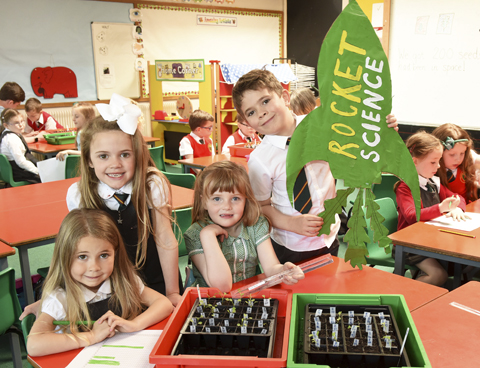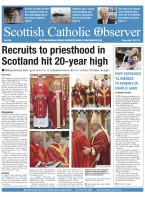BY Daniel Harkins | May 27 | ![]() 0 COMMENTS
0 COMMENTS ![]() print
print

Actually, class, it IS rocket science
BUDDING space biologists from St Helen’s Primary School in Bishopbriggs reached for the stars as they embarked on a voyage of discovery by growing seeds that have been into space.
In September last year, 2kg of rocket seeds were flown to the International Space Station (ISS) on Soyuz 44S, where they spent several months in microgravity before returning to Earth in March.
St Helen’s received a project pack in April containing a project guide and seeds. The seeds were sent as part of Rocket Science, an educational project launched by the UK Space Agency and the Royal Horticulture Society’s Campaign for School Gardening.
The rocket lettuce seeds were in two coloured packets with 100 seeds from space and 100 seeds that hadn’t made the journey. The children won’t know which seed packet contains which seeds until all results have been collected by the RHS Campaign for School Gardening and analysed by professional biostatisticians.
The experiment lasts seven weeks and the P2/1 pupils are looking after the plants and measuring the differences.
The nationwide science experiment is intended to help children to think more about what astronauts need to survive long-term missions in space and the difficulties surrounding growing fresh food in challenging climates.
“We are very excited our school is taking part in Rocket Science,” Maureen O’Connor, headteacher at St Helen’s, said. “This experiment is a fantastic way of teaching our pupils to think more scientifically and share their findings with the school community.”
Pic: Paul McSherry
—This story ran in full in the May 27 edition print of the SCO, available in parishes.











